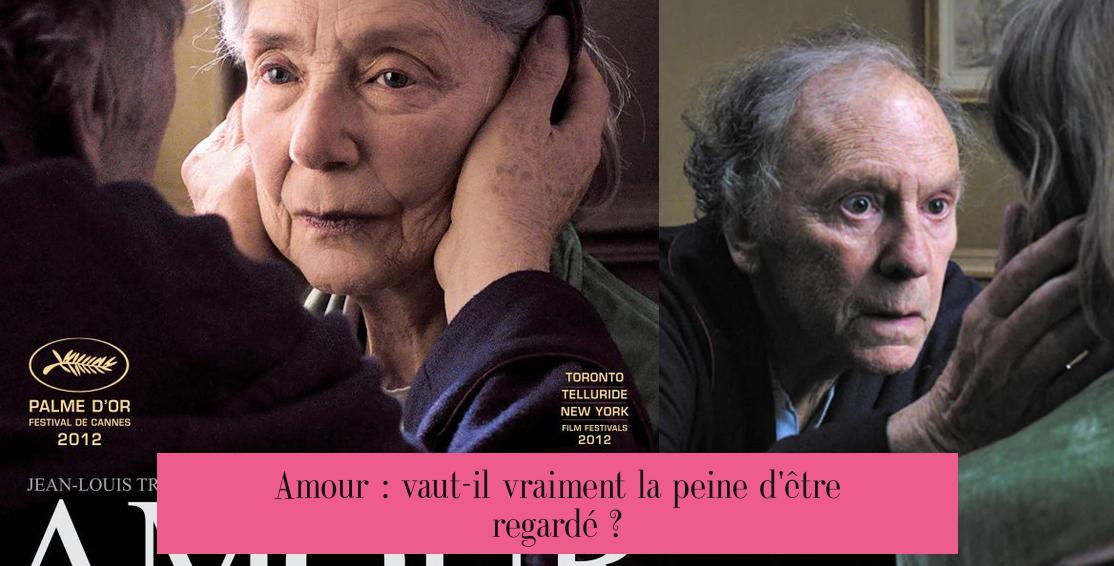Amour : un film qui vaut-il la peine d’être regardé ?
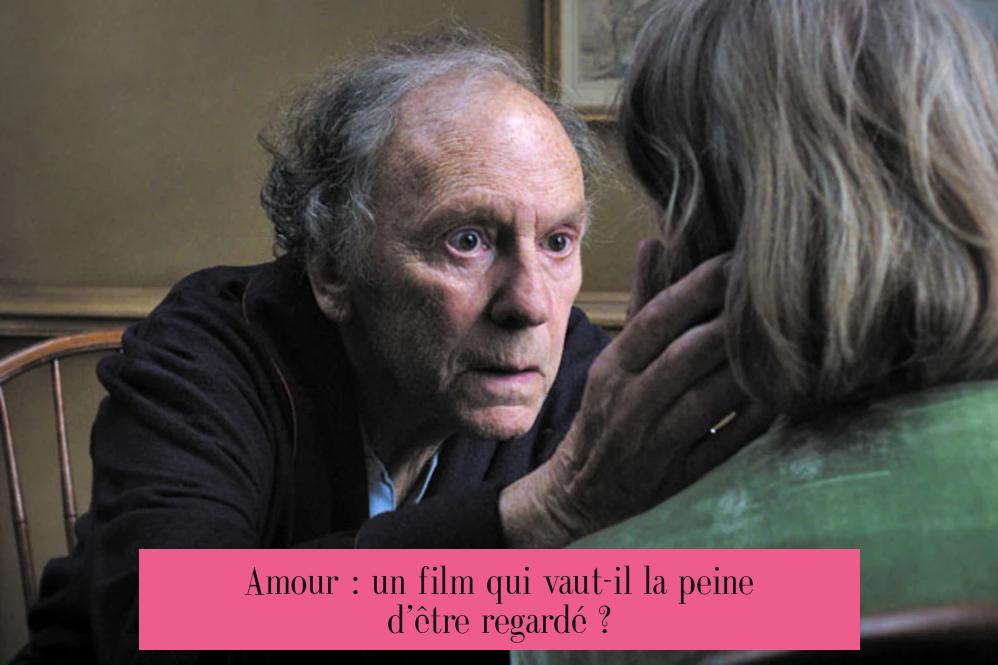
Amour, réalisé par Michael Haneke en 2012, est une œuvre cinématographique profondément touchante qui explore l’amour face à la vieillesse, la maladie et la mort. Ce film est largement considéré comme un chef-d’œuvre et a remporté la Palme d’Or au Festival de Cannes.
1. Réalisation et récompenses
Michael Haneke, auteur autrichien reconnu pour son cinéma intense et provocateur, signe ici un film singulier, plus tendre que ses œuvres précédentes. Amour lui a valu un deuxième Palme d’Or en quatre ans, soulignant l’excellence reconnue du film par la critique et le public mondial.
2. Intrigue et thématiques clés
L’histoire suit un couple parisien âgé, Anne et Georges, deux professeurs de musique à la retraite. Après un AVC, Anne souffre d’une paralysie et d’un déclin mental progressif. Georges devient son principal aidant, prenant soin d’elle dans leur appartement avec un soutien infirmier.
- La dégradation de la santé met à l’épreuve leur amour et leur dévotion.
- La relation avec leur fille Eva est marquée par des tensions concernant les soins à prodiguer.
Le film dépeint l’amour au-delà de la beauté et de la jeunesse. Il intègre les dimensions éthiques et émotionnelles du soin, des responsabilités lourdes imposées aux aidants et des difficultés liées aux décisions en fin de vie.
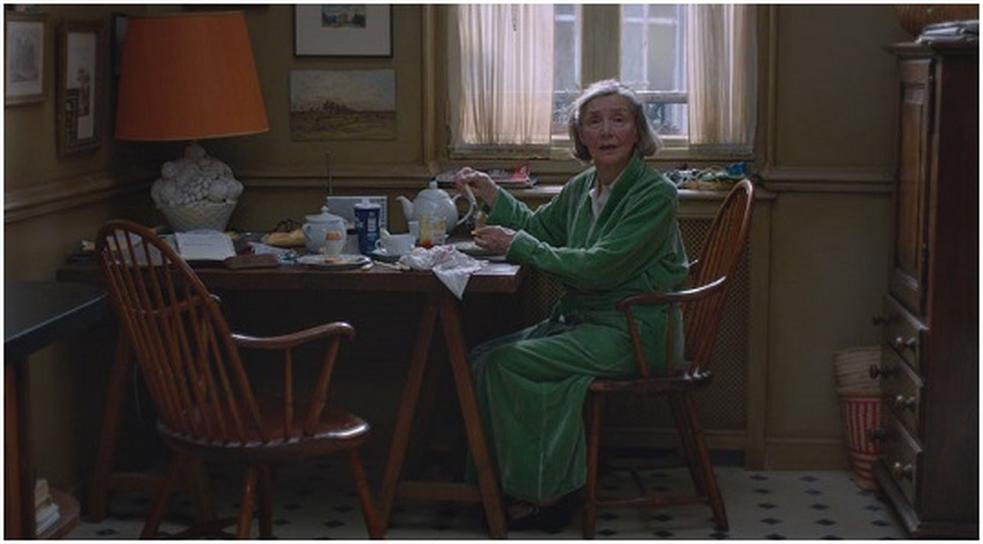
3. Style et approche de Michael Haneke
Contrairement au ton souvent dur et dérangeant de ses films précédents, Haneke propose une narration plus humaine et sobre. Il évite la sentimentalité excessive, préférant une approche réaliste. Le décor confiné de l’appartement parisien favorise une intimité sans claustrophobie.
- Longs plans fixes et rythme lent soulignent les enjeux psychologiques.
- Symboles discrets, comme une effraction ou un pigeon, renforcent la tension subtile.
- Le film reflète un tournant pour Haneke vers la compassion et la dignité.
4. Impact émotionnel et expérience du spectateur
Amour est difficile à regarder à cause de sa représentation sans filtre des réalités du déclin physique et mental. La lenteur et l’absence d’action franche peuvent déconcerter certains. Pourtant, l’intensité émotionnelle est saisissante, provoquant souvent une charge affective forte et une réflexion sur nos propres relations familiales.
5. Performances des acteurs
Jean-Louis Trintignant (Georges) et Emmanuelle Riva (Anne) offrent des prestations marquantes. Leur interprétation silencieuse et pleine de nuances transmet la complexité d’un amour durable sous la pression.
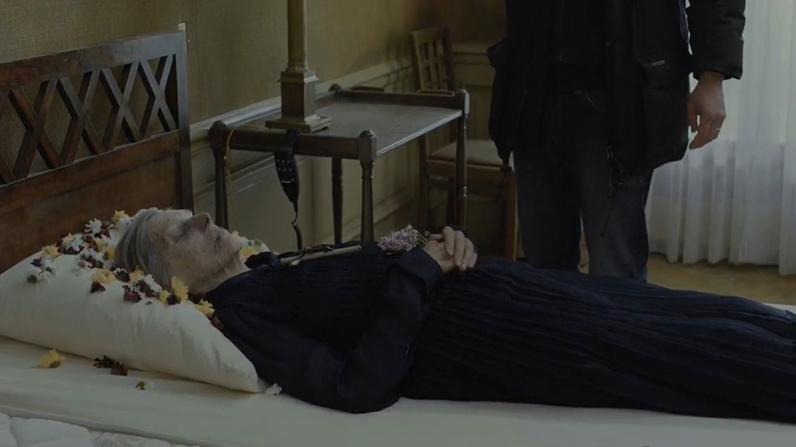
- Trintignant incarne la retenue et la dévotion sans pathos.
- Riva rend vivante la fragilité croissante avec une expressivité minimale.
- Isabelle Huppert complète avec un rôle bref mais important.
6. Réception critique
Saluer unanimement par la critique, Amour figure souvent parmi les meilleurs films de son année et de la décennie. Il est loué pour sa profondeur émotionnelle, son réalisme et sa représentation honnête des thèmes de la vieillesse et de la mort. Toutefois, son rythme lent et ses scènes contemplatives ne conviendront pas à tous.
7. Pour qui est ce film ?
Amour s’adresse à un public prêt à affronter des sujets lourds, comme la mort imminente et le rôle d’aidant. Les personnes ayant expérimenté la maladie grave ou la perte proche trouveront une résonance particulière.
Résumé en points clés
- Film récompensé par la Palme d’Or, salué pour sa puissance émotionnelle et son réalisme.
- Histoire centrée sur un couple âgé, confronté à la maladie et à la dépendance.
- Style sobre, évitant la sentimentalité, avec un cadre intimiste et des symboles subtils.
- Performances impressionnantes des acteurs principaux, transmettant complexité et humanité.
- Film lent et parfois difficile, réservé aux spectateurs ouverts à des réflexions profondes sur la vieillesse et l’amour.
Is Amour Worth Watching?
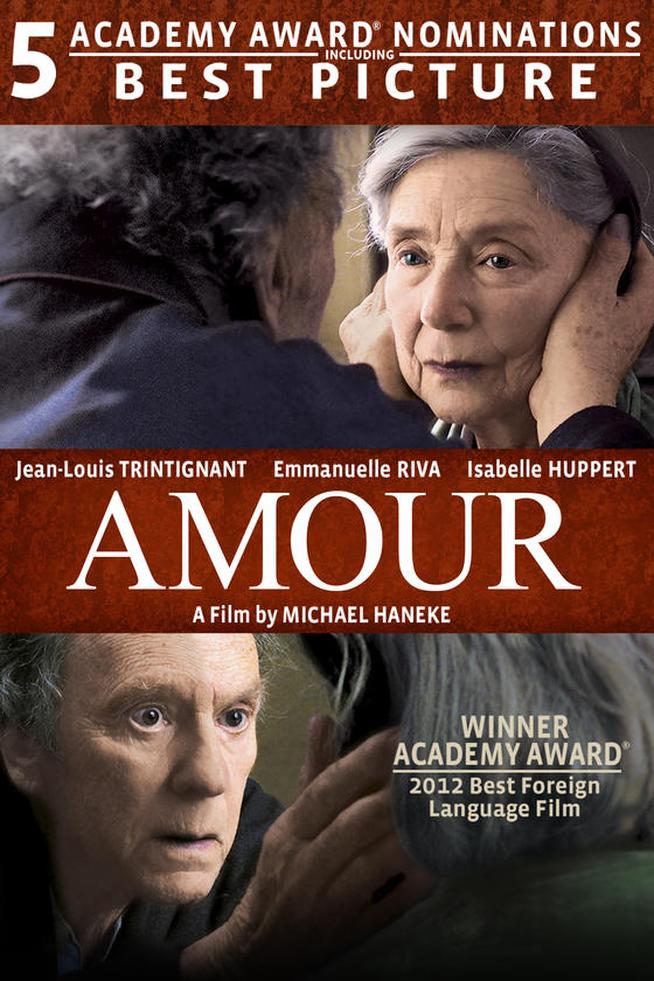
Yes, Amour is absolutely worth watching. It’s not a film for the faint-hearted, nor for those seeking light entertainment. Instead, it offers an unvarnished, deeply empathetic look at the final chapters of life, love, and suffering. Crafted by Michael Haneke, a director known for confronting unsettling truths, Amour breaks from his usual sharp-edged style and delivers a story soaked in humanity.
But what exactly makes Amour more than just “another drama”? Let’s unpack its layers — from its director’s signature touch, to the gut-wrenching performances, and to the profound themes echoing long after the credits roll.
Michael Haneke: The Mastermind Behind the Lens
Michael Haneke doesn’t produce films to lull you into comfort. The Austrian auteur’s previous works like The White Ribbon and Funny Games immerse viewers in relentless tension and unease. His hallmark? A suffocating atmosphere that keeps you braced for disaster. It’s Hitchcock-level manipulation of emotions, but with his own icy stamp.
Still, Amour earned Haneke his second Palme d’Or in four years — no small feat. The film manages to hold his dread-filled atmosphere but trades in cold cruelty for warm, raw human devotion. That’s an unexpected pivot that few directors manage with such credibility.
Plot and Characters: An Intimate Portrait of Love and Aging
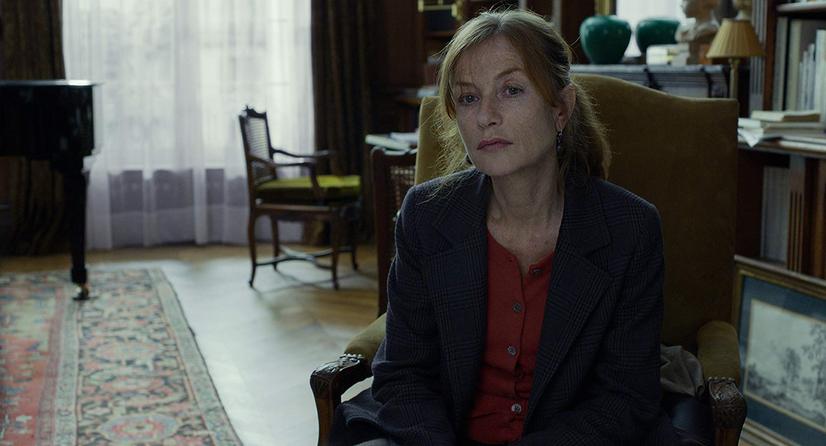
The film centers around Georges (Jean-Louis Trintignant) and Anne (Emmanuelle Riva), an octogenarian couple, both retired music teachers living quietly in Paris. Then Anne suffers a stroke. Her right side becomes paralyzed, her mind fades, and Georges steps into the unenviable role of caregiver.
It’s a story we don’t often see told with this level of authenticity. The mundane details of the apartment where much of the story unfolds – the quiet rooms, familiar furniture – heighten the feeling that we’re intruding on a real, lived experience. There’s no soundtrack swelling with swell emotions; instead, subtle glitches in reality, like an intrusive pigeon or an unexpected break-in, pepper the film like metaphors that suggest chaos lurking beneath calm.
Themes — Love Beyond Beauty and Youth
People often think love is about butterflies and romance, but Amour uncovers a tougher, less glamorous side: the sheer responsibility, the exhaustion, and the painful attachments when someone you love declines. The film doesn’t shy away from the “ugly realities” — the loss of dignity, the ethical complexity of caring for someone facing death, and the emotional toll it exacts.
The relationship between Georges and their daughter Eva (Isabelle Huppert) adds another layer. She represents the outside world’s urge for practical solutions and intervention, clashing with Georges’ deeply personal, stubborn care for Anne. It’s a realistic portrayal of family tension when confronting terminal illness.
Stylistic Choices: How Haneke’s Direction Amplifies Impact
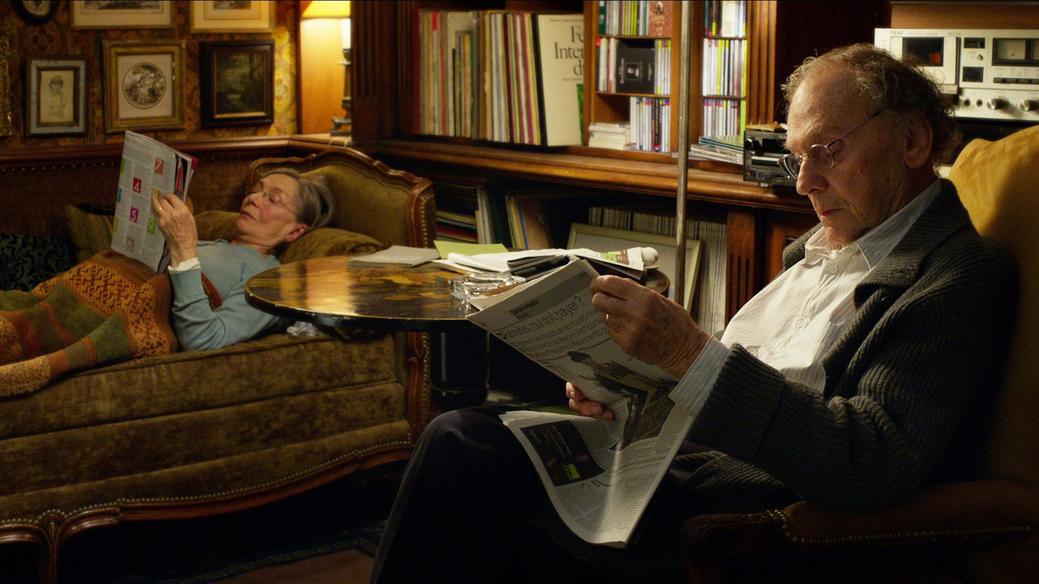
Unlike conventional dramas, Amour avoids melodrama and gratuitous emotional manipulation. The camera stays mostly still — no swooping overshots, no frantic cuts. This constrained approach invites viewers to slow down and absorb, to really sit with the discomfort and emotional gravity.
Haneke omits a traditional musical score, opting instead for natural sounds and awkward silences that emphasize loneliness and the passage of time. This austerity makes every sigh, every gesture, profoundly meaningful.
Performances That Demand Attention
Jean-Louis Trintignant embodies Georges with quiet strength. His stoic exterior masks a heart breaking in slow motion. Emmanuelle Riva’s portrayal of Anne is nothing short of a revelation—conveying a fading mind and frail body, yet her spirit remains tangible through nuanced posture and fleeting facial expressions.
Isabelle Huppert, though not central, delivers a compelling counterpoint as Eva, underscoring the real-life complexities families face.
Critics often hail these performances as an “octogenarian masterclass in acting.” Watching these seasoned actors embody love in its final, toughest phase is nothing short of mesmerizing.
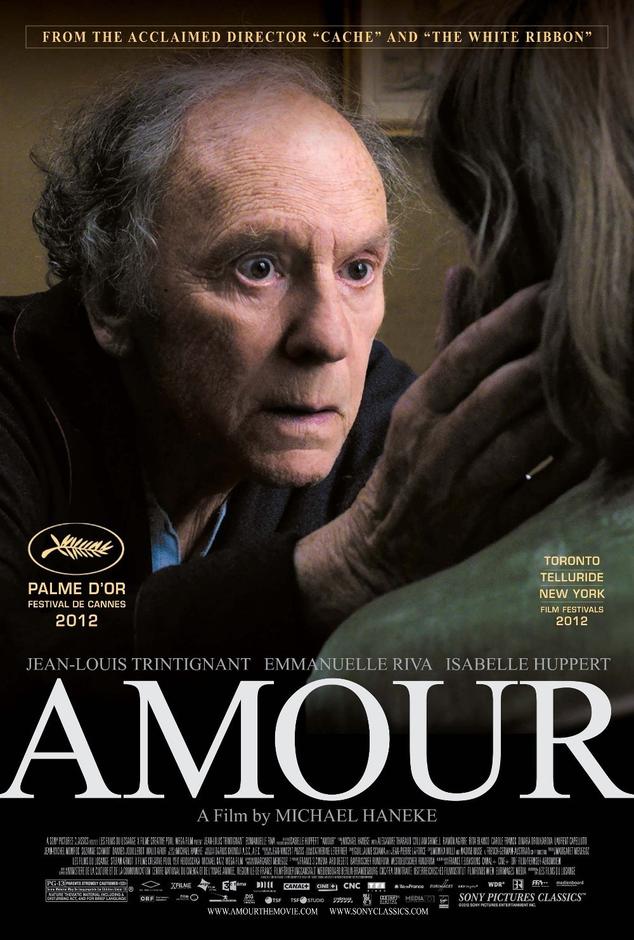
Can You Handle the Emotional Intensity?
Be warned: Amour is an emotionally taxing watch. Expect moments you’ll have to look away, the type of film that might make you want to dial your parents or grandparents and express your love more vividly. It asks viewers to confront mortality, caregiving, and the slow erosion of identity with stark honesty.
Its slow pacing and minimal action might frustrate some. Yet, that slow burn is precisely what builds its emotional heft. Are you open to a film that challenges your usual palate for entertainment, showing love not as a fleeting sentiment but as a lifelong commitment, fraught with pain and devotion?
Critical Reception: A Film That Sparks Conversations and Reflection
Amour swept to the top of many “Best of” lists and clinched the Palme d’Or at Cannes. Critics celebrated its ability to portray death and aging without pretension, often describing it as “deeply beautiful,” “quietly unforgettable,” and possibly “the defining film on love and mortality of the decade.”
It’s a film that redefines love, showing it as complex and ethical, not just romantic ideals. This rare perspective, along with its austere yet majestic style, ensures it remains a deeply human story, not just a clinical case study.
Why Should You Watch Amour?
- To witness a rare, unfiltered portrayal of old age and mortality.
- To experience masterful acting that brings a lifetime of love and hardship to life.
- To engage with profound ethical questions about caregiving, dignity, and the limits of love.
- To be challenged emotionally and intellectually by a film that honors without sentimentality.
Haneke himself calls Amour a compassionate and intelligent story. Far from sentimental or manipulative, it respects both its characters and its audience. This is why it stands out even within the director’s intense filmography as “something special.”
Conclusion: The Lasting Footprint of Amour
Is Amour worth watching? Without a doubt. It’s a work that asks us not to look away from the tougher truths—the decline in health, the ethical burdens, and the endurance of love past beauty and vitality.
This isn’t a feel-good movie or a quick pick-me-up. It’s a film that stays with you, haunting your thoughts, reshaping your ideas about what love means when time runs out. When was the last time a film made you rethink the very essence of devotion?
If you are ready to embark on a cinematic experience that challenges, moves, and respects your intelligence, Amour is a must-watch. It’s a reminder that love, in its truest form, survives all odds—even the brutal finality of death itself.
Amour vaut-il la peine d’être regardé malgré son sujet difficile ?
Oui, Amour offre une vision réaliste et profonde de la vieillesse et de la maladie. C’est un film difficile à regarder, mais il touche profondément et invite à réfléchir sur l’amour et la fin de vie.
Le style de Michael Haneke rend-il le film accessible au grand public ?
Le film est lent et silencieux, avec peu d’action. Ce n’est pas pour tout le monde, mais il captive par sa sobriété et la force de ses personnages. Il demande une attention patiente.
Les performances des acteurs contribuent-elles à la force du film ?
Jean-Louis Trintignant et Emmanuelle Riva offrent des interprétations puissantes et crédibles. Leur complicité et réalisme rendent le récit très émotionnel et authentique.
Le film propose-t-il une vision classique ou originale de l’amour à un âge avancé ?
Amour explore l’amour au-delà de la beauté et de la jeunesse. Il montre la dévotion, la responsabilité et les difficultés réelles du dernier âge avec un regard à la fois humain et exigeant.
Peut-on recommander Amour à un public sensible ?
Le film est intense et parfois éprouvant. Il est préférable pour ceux prêts à affronter la dureté des thèmes de la fin de vie et du déclin, mais il reste une expérience enrichissante et poignante.

